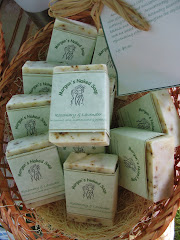 posted by Melissa Breyer Oct 15, 2009 5:01 pm
posted by Melissa Breyer Oct 15, 2009 5:01 pmfor Care2 Healthy and Green Living
As the days start their slow climb toward the winter solstice I always find myself lighting more and more candles to compensate for the diminishing sunlight. I love the warmth and flicker of light they can infuse a room with, rooms otherwise flat by the increasingly muted autumn and winter skies. Yet while candles can create a lovely mood, some types also create toxic emissions that are hardly worth the ambiance.
The candle culprits? Paraffin wax candles. These candles, which are made from petroleum, are a source of known human carcinogens and indoor pollution, researchers said in a study presented last month at the American Chemical Society’s national meeting in Washington, D.C. In the study, R. Massoudi and Amid Hamidi found that candles made from beeswax or soy, although more expensive, are safer because they do not release potentially harmful pollutants.
“An occasional paraffin candle and its emissions will not likely affect you,” Hamidi said in a news release from the American Chemical Society. “But lighting many paraffin candles every day for years or lighting them frequently in an unventilated bathroom around a tub, for example, may cause problems.” Hamidi also said that some people who believe they have an indoor allergy or respiratory irritation may actually be reacting to pollutants from burning candles. They noted that ventilation can help reduce the level of pollutants in closed rooms–but I say, better yet: switch to a healthier alternative!
Another part of the healthy candle discussion is centered around fragrance–synthetic fragrance, by which the majority of candles are made fragrant by. A study performed by the EPA found that numerous potentially hazardous chemicals are commonly used in synthetic fragrance, including acetone, benzaldehyde, benzyl acetate, benzyl alcohol, camphor, ethanol, ethyl acetate, limonene, linalool, and methylene chloride.
So, your best bet? Unscented, 100 percent beeswax candles with a cotton wick are the safest option–but aren’t suitable for vegan candle-lovers who should opt for unscented soy-based candles. There are also a number of other vegetable wax based candles on the market; just make sure you are avoiding paraffin and synthetic fragrance.







No comments:
Post a Comment